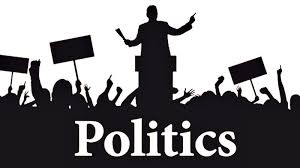
What is politics?
Politics is the process by which groups of people make decisions. These decisions may be internal, such as the laws and regulations that govern a particular community or country. They can also be external, informing relationships with other political groups. There are many types of political systems that exist today
- Closed autocracy: Citizens are unable to choose their representatives through elections.
- Electoral autocracy: Citizens may elect representatives, however they lack certain freedoms that impact fairness.
- Electoral democracy: Citizens elect representatives through free and fair multi-party elections.
- Liberal democracy: Citizens may elect representatives and hold individual rights, prohibiting lawmakers from discriminating against specific groups.
Politics impacts everything from how people get around their communities to the allocation of resources. By studying politics, you can better engage with your community, influence policy, and contribute to a global society.
The Complex World of Politics
Politics is a multifaceted domain that shapes the governance and functioning of societies around the globe. It influences every aspect of life, from individual freedoms and economic growth to international relations and social equity. This article delves into the origins, evolution, and contemporary significance of politics, while also exploring its benefits and challenges.
The Origins of Politics
Politics as a structured concept traces its roots back to ancient civilizations. Key milestones include:
- Ancient Greece: The birthplace of democracy, where philosophers like Plato and Aristotle laid the foundations of political thought.
- Roman Empire: Introduced concepts of republicanism and structured governance.
- Feudal Europe: Marked by hierarchical systems where political power was concentrated in monarchies and nobility.
- Enlightenment Era: Political philosophy flourished with ideas of liberty, equality, and fraternity from thinkers like John Locke, Jean-Jacques Rousseau, and Voltaire.
Modern Political Systems
Today, politics encompasses various systems of governance, each with unique characteristics and goals:
- Democracy:
- Power lies with the people through elected representatives.
- Examples: United States, India, Germany.
- Authoritarianism:
- Concentrated power in the hands of a single leader or a small group.
- Examples: North Korea, Belarus.
- Monarchy:
- A form of government led by a king or queen.
- Examples: Saudi Arabia (absolute monarchy), United Kingdom (constitutional monarchy).
- Communism:
- Advocates for a classless society and collective ownership of resources.
- Examples: China, Cuba.
The Role of Politics in Society
Politics plays a crucial role in shaping societal structures and addressing key issues such as:
- Economic Development:
- Governments create policies to boost industries, manage resources, and ensure fair trade.
- Examples: Tax reforms, stimulus packages.
- Social Justice:
- Focuses on reducing inequalities and protecting rights.
- Examples: Civil rights movements, affirmative action policies.
- International Relations:
- Diplomacy and treaties maintain global peace and cooperation.
- Examples: United Nations, NATO, trade agreements.
Benefits of Politics
- Representation:
- Ensures that diverse voices are heard through elections and policy-making.
- Regulation and Order:
- Establishes laws to maintain societal harmony and prevent chaos.
- Innovation:
- Political competition fosters innovative solutions for societal problems.
Challenges in Politics
- Corruption:
- Abuse of power for personal gain undermines trust and efficiency.
- Polarization:
- Divisive ideologies can lead to societal discord and stagnation.
- Global Issues:
- Addressing transnational challenges like climate change and pandemics requires unprecedented cooperation.
The Future of Politics
The political landscape continues to evolve with emerging technologies, shifting demographics, and global challenges. Key trends include:
- Digital Politics:
- Social media and online platforms play a significant role in campaigns and public opinion.
- Youth Engagement:
- Increasing participation from younger generations in leadership and activism.
- Global Cooperation:
- Greater emphasis on international partnerships to address global crises.
Conclusion
Politics remains a vital force in shaping the world. While it presents numerous challenges, its potential to drive progress and improve lives cannot be overlooked. An informed and engaged populace is key to ensuring that politics serves the greater good, fostering a fairer and more inclusive society for all.

